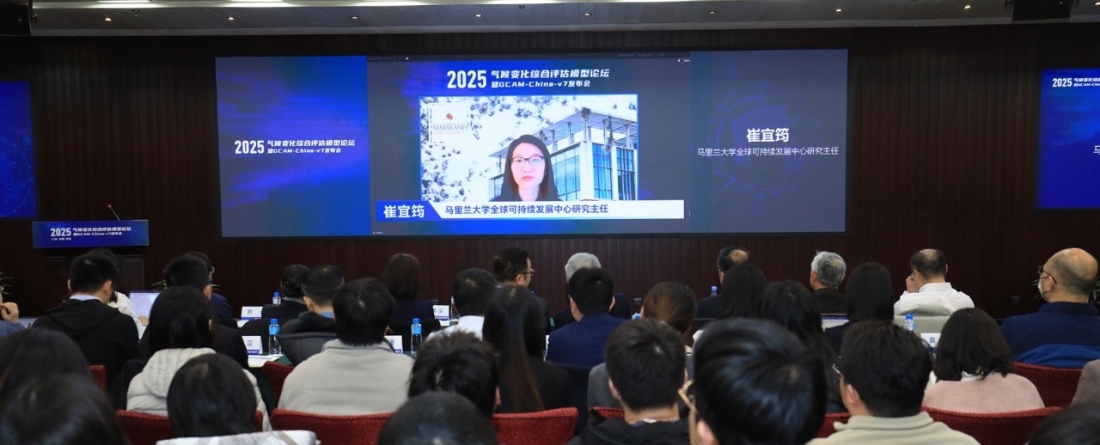
On March 30, 2025, the Center for Global Sustainability (CGS), in partnership with Peking University and Tsinghua University, celebrated the release of GCAM-China-v7 in Beijing. This updated version of GCAM-China represents another key milestone for the model since the last version was launched in March 2024. CGS Research Director and China Program Co-Lead Ryna Cui provided opening remarks at the launch event to recognize and appreciate the dedicated, collaborative efforts by the joint U.S.-China modeling community, which advances the integrated assessment model capabilities for China’s energy, climate, and development strategies analysis.
As one of the core partners, CGS hosts the open-source GCAM-China on its GitHub website and has been closely involved in the maintenance, development, and application of the model. Over the past year, since its first launch, GCAM-China has been downloaded more than 1,600 times, with a rapidly growing user community of nearly 500 participants from 70 different institutions. Open source has substantially accelerated the adoption, application, and advancement of GCAM-China through an active and thriving community, making it a successful model for other region-focused GCAM versions under development.
The updated version of GCAM-China-v7 includes several new features, ensuring consistency with the global version while enhancing its capabilities for China-specific applications. The new version features an updated data system aligned with the global GCAM v7.1, an upgrade to Hector v3, and the incorporation of provincial wind and solar resource curves to better assess regional renewable energy potential. It also introduces a refined classification of residential energy consumption by urban/rural areas and income groups, alongside a provincial-level downscaling of non-CO₂ emissions to enhance regional climate impact assessments. These advancements empower researchers and policymakers to explore more precise, dynamic, and equitable pathways toward carbon neutrality.
In her remarks, Prof. Ryna Cui also introduced CGS’s research on using GCAM-USA-CGS to explicitly represent non-federal climate actions to assess high-ambition climate pathways in the United States.
“GCAM-China’s value is considerable and will contribute to enhanced climate analyses by researchers in China, the United States, and others around the world," Cui said. “This greater scientific understanding will allow researchers to assess transition strategies and benefits across different systems and develop more effective climate policies at all levels of government and society.”
The launch convened a significant gathering, attracting nearly 200 attendees in person and more than 10,000 online viewers. This highlights the increasing dedication of the international scientific community to advancing climate research and policy development by IAMs. CGS will continue collaborating with its partners to improve upon GCAM-China, as well as the China Program’s entire research portfolio, to catalyze ambitious climate action in both the United States and China, as well as globally.
